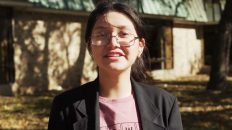

I have interviewed hundreds of students all over the county about their understanding of basic math concepts. What I’ve learned in these interviews has fundamentally changed the way I think about teaching and learning math. I’ve learned that students are failing to find success in algebra and beyond, not because of the math they fail to learn in high school but because of the math they fail to learn in elementary school. But, it has also become clear to me that the math they are learning in elementary school is just not cutting it.
Let me explain. In my years since completing graduate school, I have worked with hundreds of middle and high school math teachers to share what I have learned about the ways students misunderstand the math they should have mastered in elementary school. As part of my work with these teachers, I always ask what elementary math skills they value. I wanted to know what middle and high school teachers believe are the most important elementary math skills students should master by the time they leave 5th grade. Through these conversations I discovered a pattern that has been reproduced consistently in workshops I have conducted across the country.
At the outset of my workshops, I ask participants to provide an elementary math skill they believe students should master by the time they leave 5th grade. I record the skill on a flip chart and then ask the next teacher to offer another skill. Each teacher must provide a new skill to add to the list. At the end of the exercise, we often have 20 or more skills listed on the chart (such as, telling time on an analog clock; converting units of measure, algorithms etc). At this point, I tell the participants that they must now come up with the top 3 elementary math skills as a group. In the more than 10 years that I have been conducting these sessions, the answer NEVER changes. The Top 3 elementary math skills (as determined by middle and high school teachers) are ALWAYS:
- Basic Fact Automaticity- this can be considered the equivalent of sight word recognition in reading. Students should “see it/know it” for all basic addition subtraction, multiplication and division facts.
- A deep and flexible understanding of fractions
- Strong reasoning skills (as in “does this answer make sense to me”?).
Unfortunately, this list has NEVER been reproduced when I conduct the exact same exercise with elementary school teachers. In fact, the “Top 3” lists as determined by elementary school teachers is different in every workshop that I conduct. So, not only are elementary school math programs failing to align with middle and high school math teacher expectations, they also fail to align with each other. As a result, students are experiencing very different math programs (even when they are using similar textbooks) simply because what is valued is highly specific to the school.
I used to believe that older children who struggle in math do so because they did not master what was taught in elementary school. I now believe that these students struggle in math because what is taught in elementary school is not what is needed to succeed in algebra and beyond.
Angela McIver is founder of Dinner Table Math® and Trapezium Math Club,® an after-school and summer camp program for elementary students in the Philadelphia area. She also works with elementary schools to implement engaging math in the classroom. Angela is the mother of three children (one in middle school and two in high school) and is thankful she had an opportunity to positively impact their math education as young children. McIver completed her PhD at the University of Pennsylvania’s Graduate School of Education. Her dissertation, Understanding the Numerical Reasoning of Middle School Students, focused on understanding why so many students struggle with math after leaving elementary school.








1 comment